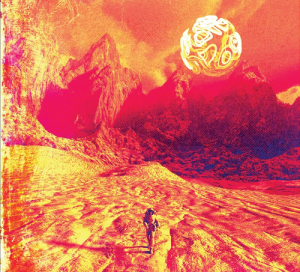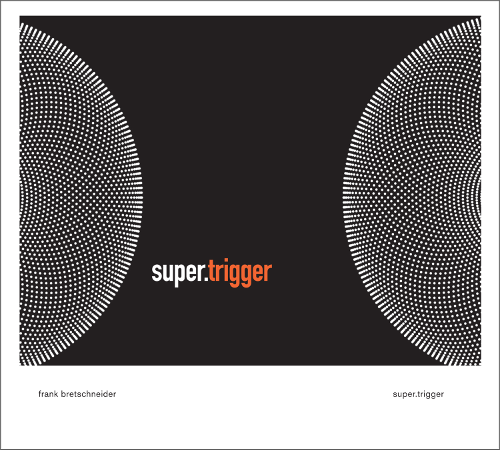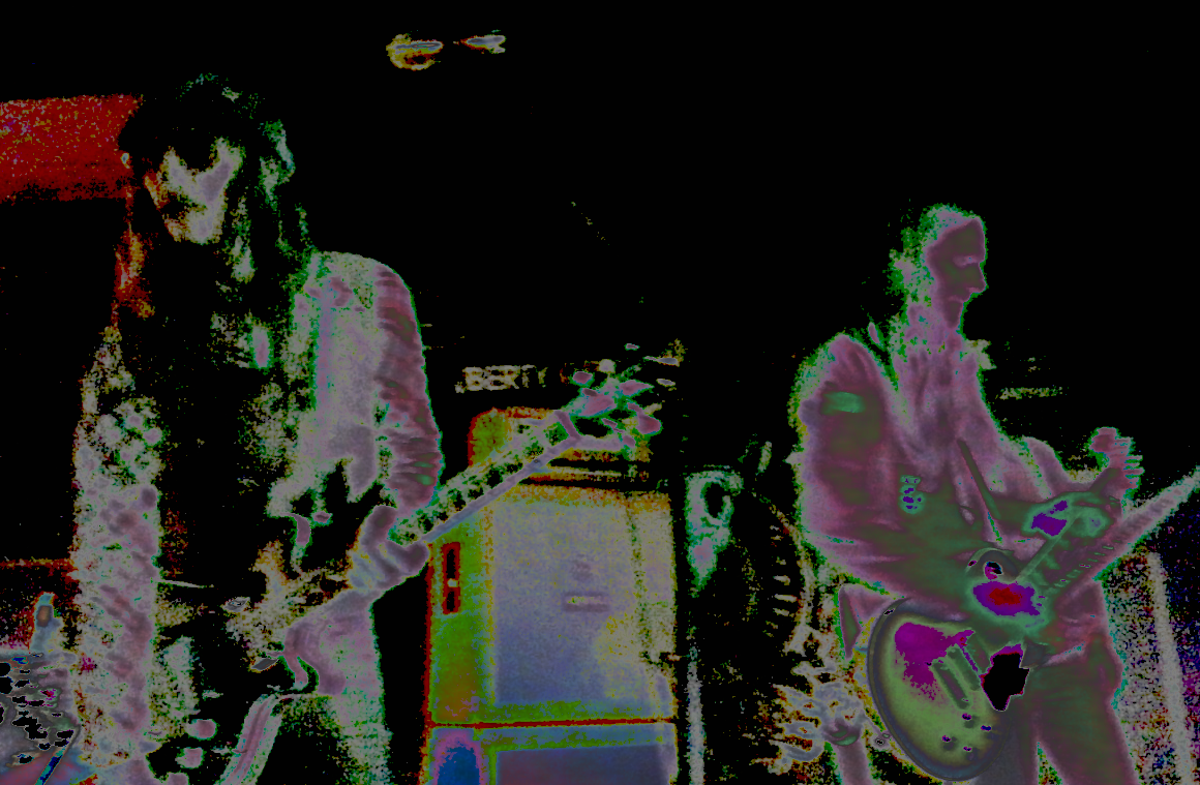 Philippe Petit‘s double-CD album Do Humans Dream Of Electronic Ships is all over the place, exhaling a sci-fi softness the type Louis and Bebe Barron sculpted back in the ’50s.
Philippe Petit‘s double-CD album Do Humans Dream Of Electronic Ships is all over the place, exhaling a sci-fi softness the type Louis and Bebe Barron sculpted back in the ’50s.
Really nice to hear a bit of Petit’s turnable action in there too, the crawling slur of the slo-mo dribbling off the canvas like a freshly painted Dalí clock, the filtered crackle like a meteor storm inside your speakers. The odd rhythmic patter that suddenly ruptures, giving the abstracts an axis – divining a strange unison, weaseling the fabric to briefly dance the spotlight cut-up by Delia-derby-shears.
As I said, it’s all over the place, but in all the right ways. The tongue in cheek “Encounters Of The 6th Kind…” is a tweeting canopy stretching its betweens, pushed and pulled until it physicality crimsons into hard triangulated pings, like percussive bricks shimmering in toothpasty cement nose-bagging the cosmic weathers. The eerie plasticity of “A Night With Three Moons” finds its drift nibbling a gorgeous choral noir, scribbled over and warped, returning in a tidal drone tyre-marked in transient gates and slippery envelopes. That scattering of up-ended piano falling into the troughing itch and crackle of dusty vinyl besieged by taut noodlings. The moon-lit sheen of “Return To Tomorrow… Is This The End” with its shadowy sententials and fornicating kinetics netting premium returns that herald the first disc’s exit. In contrast, the second disc’s fifty-two-minute “Laika In Space” is hard work; I was expecting a spacey requiem of sorts moonlighting the vacuum of space, especially after “Return To Tomorrow” — not a siren alarm on a flashing dashboard bleeding into noisy excess. That harsh Buchla rasp is rather hellish on the ears, as I should imagine it was for the Sputnik’s canine passenger as she roasted alive while orbiting the earth. A gnawing antithesis to sentimentality, its numb rub escalating, endlessly revving, falling over into rough tonals further drowned in sawtooth purrs and swerving Clanger-like curls. Luckily, the last track, “Why Do Birds”, re-injects a bit of fun back into the proceedings, purring crystaline echoics zapping round Robbie The Robot‘s insides until zip-driving into oblivion.This is space, Jim; but not as you’ve known it.
-Michael Rodham-Heaps-
A second opinion
There is something in the ambiance of Philippe’s work that always implies distance, be it the distance between people or the distance people find themselves from home. Here, over two discs, the otherworldly sounds and random elements that heighten the usual tension are played down. If anything, the first disc here is less alienating and at some points comes on as if the Moomins had discovered some sort of underground lair previously unknown to them and attempted contact. There is something unnaturally natural about the sounds captured here and the extruded slightly hysterical speech at least gives the impression of communication. It just isn’t so lonely sounding.The sound production harks back somewhat to Joe Meek, those auteur experiments sculpting new worlds out of the detritus of this one; but there is so much more scope after fifty years of horizon-expanding. How far can sound travel in five decades? Some sounds are familiar but out of context and pass through the five pieces here like wraiths.
“Encounters Of The Sixth Kind” comes on like a soundtrack to the last scene in Haruki Murukami‘s novel Pinball, as if all the trapped pinball machines came to life and tried to communicate, having forgotten their original purpose. The background hum of electrical generation accompanies solo outbursts as if a seminar were in place and they were deciding how best to proceed, or who best to pursue. You have the sense of the cold echo of the warehouse and the solitude of the situation creeping into the errant sounds. The love of sci-fi does make itself apparent as the album progresses. I felt the touch of dread in “A Night With Three Moons” that Sapphire And Steel always used to give me, that odd air of tension with a drone cutting through. Some of the sounds come at you through the wall, carving their way in a shocking and hysterical fashion, with out-of-control fighter planes, hoverships and space butterflies awakened and flitting around the control room. There is a touch of musicality in the final track, with piano notes and vibes lending a noir-ish air of shadows under streetlights; but shadows of what? There is a lot of space and time allowing the sounds to sink in and for you to wallow in the abstractions that Philippe has presented for you here.As a bonus, there is a second disc with two improvs, one of which is the fifty-minute “Laika In Space” attempts to plot the feelings that the ill-fated dog would have experienced as she was launched into orbit. The start is lovelier and sparser that expected. I found myself wondering if she could see anything out of the capsule and is so what she made of it. Was she looking out at the night sky as other earthbound dogs were looking up from their gardens? We feel satellites passing by and the electronic scrapes and sparkles follow her moods as oscillations follow movements of light and periods of dark.
Things grow disjointed and harsher as panic sets in and the speed of things passing the windows increases as her lack of understanding comes out, trying to escape but with nowhere to go. Considering its length, it is surprisingly compelling and the emotional peaks and troughs, with her physical reactions measured as lines on a readout back on Earth make it all the more tragic.By the contrast, the Laika in the afterlife glow of the second piece with it growling and yapping is more playful and hectic. Cataclysmic interjections gain momentum and the nature of the earth’s processes are visited with stringed, electric vibrations, demonic birds and the flap of giant wings.
Philippe’s imagination is at a peak here and takes the listener on a fantastic journey which is by turns exciting and thought-provoking and well worth the effort.-Mr Olivetti-



